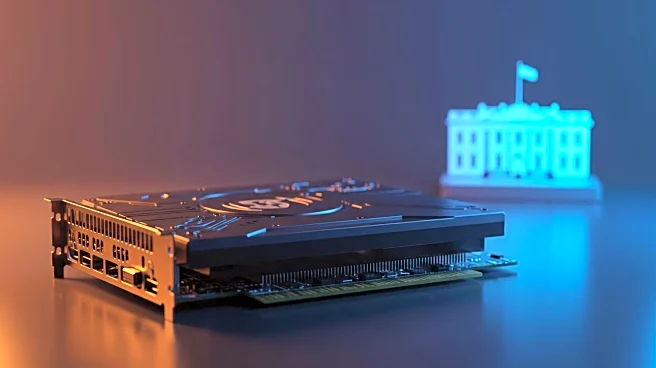What's Happening?
The White House, through press secretary Karoline Leavitt, is assessing the legality of a 15% export tax agreed upon with Nvidia and AMD for GPU sales to China. This tax could potentially extend to other companies, as the Department of Commerce works on the legal framework. President Trump has indicated that the tax is a form of compensation for allowing these companies to export to China. Nvidia and AMD have not expressed opposition to the tax, viewing it as a necessary measure to maintain export licenses. The tax agreement is unprecedented and raises questions about its legality and future implications for other tech companies.
Why It's Important?
The 15% export tax on Nvidia and AMD's GPU sales to China represents a significant shift in U.S. trade policy, potentially affecting the technology sector and international trade relations. This move could set a precedent for similar agreements with other companies, impacting their revenue and market strategies. The tax could influence the availability and pricing of advanced technology products in China, affecting global supply chains and competitive dynamics. The legality and implementation of such a tax are crucial for maintaining fair trade practices and ensuring compliance with international regulations.
What's Next?
The Department of Commerce is expected to finalize the legal framework for the 15% export tax, which could lead to broader implications for other tech companies. Stakeholders, including Nvidia and AMD, will likely continue to monitor developments and adjust their strategies accordingly. The potential expansion of the tax to other companies could prompt industry-wide discussions and negotiations. The outcome of this policy could influence future trade agreements and regulatory practices in the technology sector.










